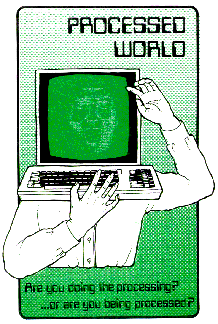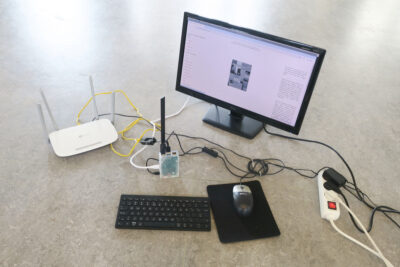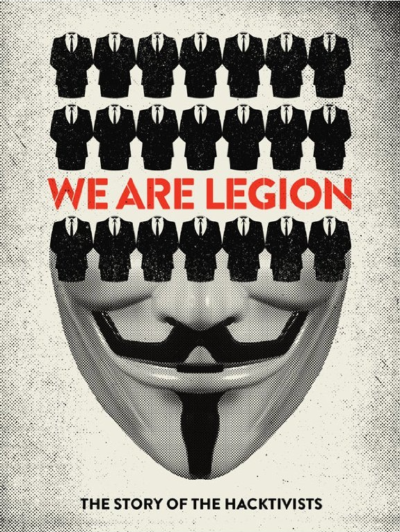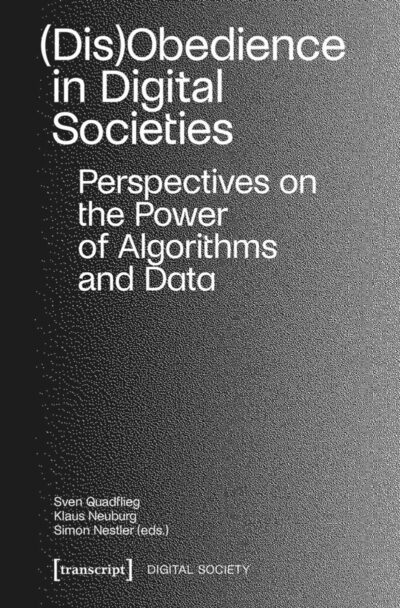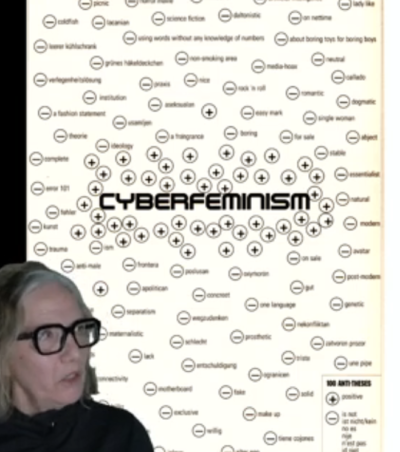“In a world where so much of our time is wasted on boring tasks or ridden with anxieties, it is important that we experiment with ideas and activities that are in themselves enjoyable. Rebellion can be fun, and humor subversive. Only by cultivating our imagination and talents will we be able to find ways to shatter the existing order.
Write to us. Tell us about your situation– where you work, what conditions you work under, what kinds of resistance you are already involved in, how you coordinate your activities with coworkers, etc. And write to us about your dreams. What kind f a world would you like to live in? What would you do with yourself if you could do what you enjoyed instead of what you’ve been forced to do to make a living?”
https://www.processedworld.com/Issues/issue01/01hello.html
https://www.processedworld.com/Issues/issue01/i01toc.html
“The new information machines are bringing changes that call for more than simple opposition. We must have some idea of what we want to do, and not sink completely into the politics of unemployment and workplace drudgery. The ease with which computers are used as instruments of social control cannot be allowed to obscure their liberatory potential.”
https://www.processedworld.com/Issues/issue01/i01newtech.html
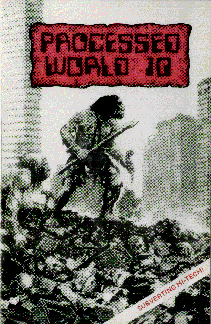
“As the opening editorial in the very first Processed World said “Rebellion can be fun, and humor subversive.” Every issue of the magazine has dedicated at least 33% of its space to graphics, usually satirical. As part of its goal to be fun here and now, and to be an outlet for frustrated creative abilities, PW gave lots of room to graphic artists, collagists, cartoonists, and punsters.
What humor communicates is not simply the punchline or the meaning behind the joke, but also the pleasure of laughter itself. Aside from the sheer fun of it, the magazine’s humor provides a more accessible, less direct way to express the attitudes and ideas put forth in the more “serious” articles. Humor has always been used to give vent to feelings and fantasies which are socially unacceptable or offensive, since jokes are less compromising than direct statements. The jokes themselves may be offensive, but ambiguous (“Does she really mean it, or is she just kidding?” ). People who won’t or can’t resort to open confrontation find an outlet in humor. Besides, many people don’t form their critical perceptions of the world and themselves via rational, cognitive processes. The directed ambiguity of political humor can give people room to react and respond on other levels-attitudes, feelings, instincts. In a period when Northern American radicals are hanging their heads, dizzied by the speed of negative developments, there often isn’t much in which to take pleasure. Or conversely, everything is so painfully ridiculous that it inspires sardonic despair. But political humor provides an antidote to either kind of hopelessness, because it exudes a disrespect for What Is that implies people can change it. Sharing humor also reinforces the immediate subjective pleasure of life, which can occasionally be the basis for bigger, more serious collective endeavors since it solidifies a sense of community among participants.”
